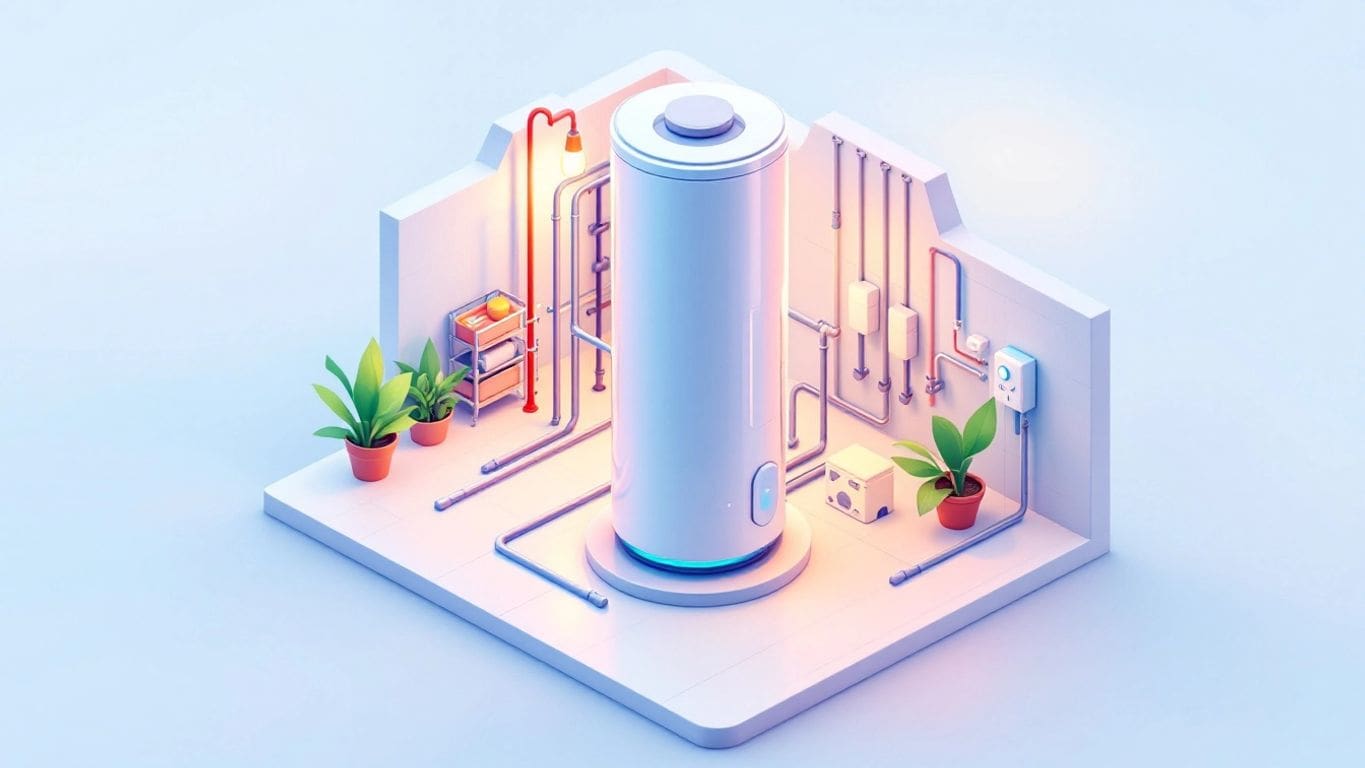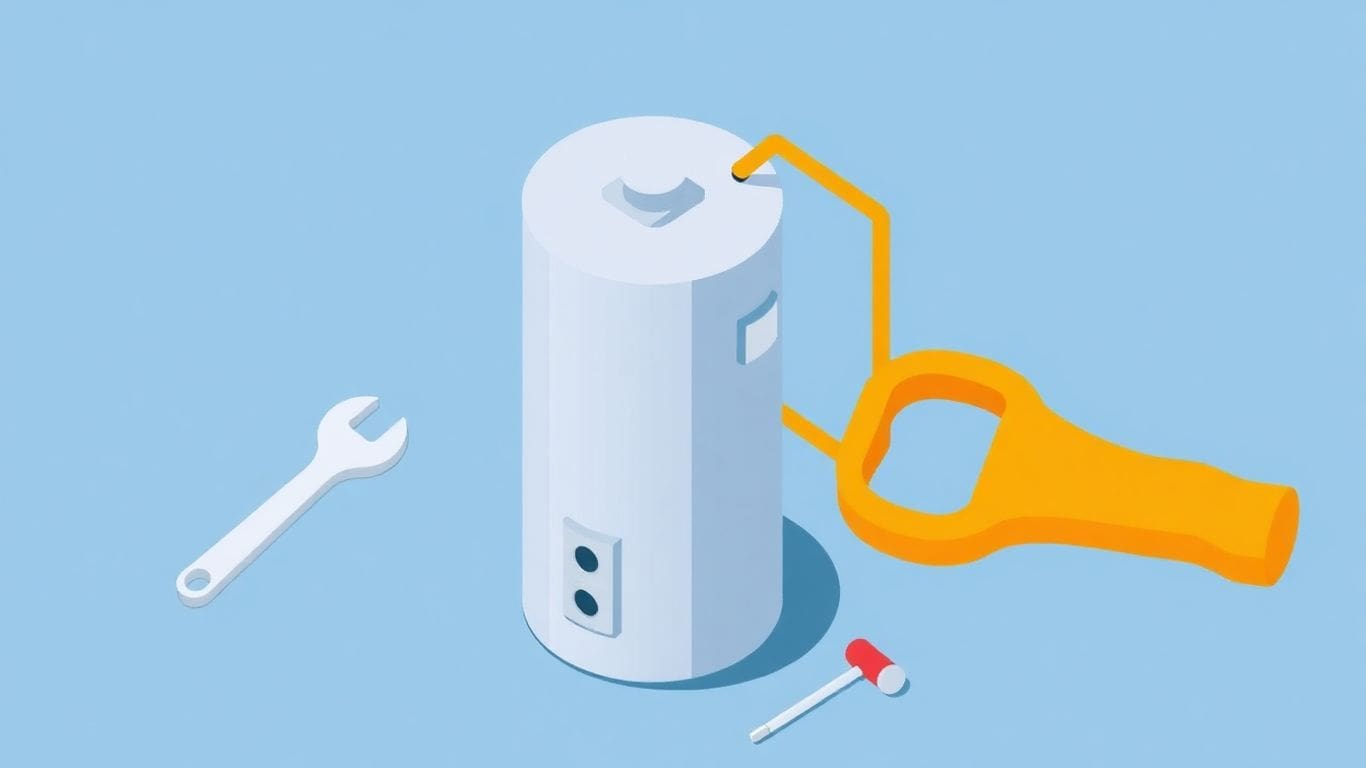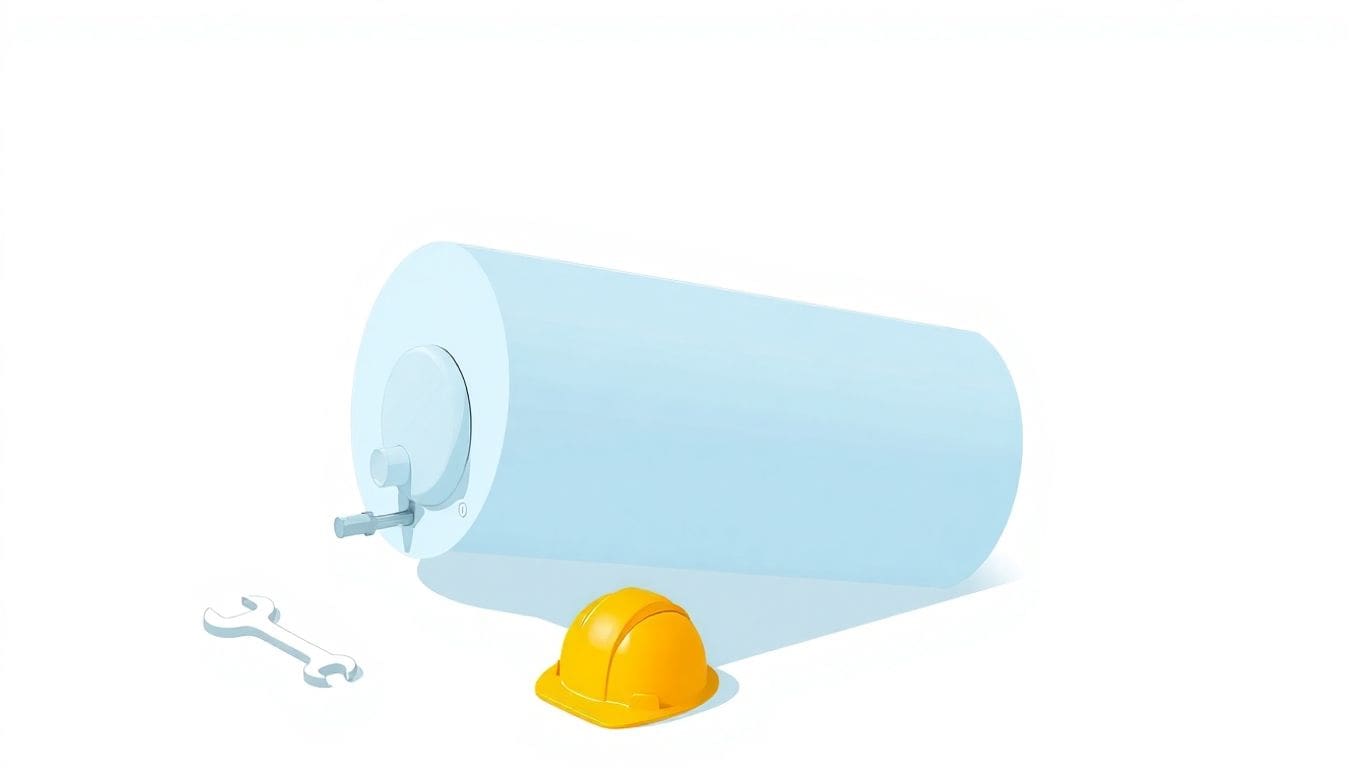
When your water heater breaks down, it can be a real headache. You might wonder if a home warranty will come to the rescue. Understanding how these warranties work can save you time and money. In this article, we’ll break down what a home warranty covers, especially when it comes to water heaters, and help you figure out if you can count on it when you need it most.
Okay, so what’s a home warranty? Think of it as a service contract that helps cover the cost to repair or replace many appliances and home systems. It’s not the same as homeowner’s insurance, which protects against damage from things like fire or storms. A home warranty is more about wear and tear.
Here’s the deal: you pay a monthly or yearly fee for the warranty. If a covered item breaks down, like your water heater, you file a claim. The warranty company then sends a technician to check it out. If it’s covered, they’ll repair or replace it, but you’ll likely pay a service fee.
Why bother with a home warranty? Well, here are a few good reasons:
Having a home warranty can really take the stress out of homeownership. When something breaks, you’re not scrambling to find someone to fix it or worrying about how you’re going to pay for it. It’s like having a safety net for your home’s systems and appliances.
Home warranties can help protect you when things break down. Let’s look at how they cover water heaters.
Home warranties usually cover the main parts of your water heater. This means if the tank leaks or a heating element fails, your warranty might pay for repairs or even a replacement. The specific parts covered can vary, so it’s important to check your plan details.
Generally, coverage includes:
Not everything is covered. Home warranties often have exclusions. These are things the warranty won’t pay for. Knowing these exclusions can save you from surprises later.
Some common exclusions are:
It’s really important to know what your home warranty covers before something goes wrong. Here’s how to check:
Understanding your home warranty coverage for your water heater can save you money and stress. Take the time to review your plan and ask questions so you know what to expect.
So, your water heater is on the fritz. You’re probably wondering if your home warranty will actually help you out. Let’s get into whether a home warranty will replace your water heater when you need it most. It’s not always a simple yes or no, so let’s break it down.
Home warranties don’t just hand out new water heaters like candy. There are conditions that need to be met before they’ll consider a replacement.
Okay, so when do they fix it, and when do they replace it? Here’s the deal:
Home warranties have limits and things they don’t cover. It’s important to know these. For example:
It’s super important to read your home warranty agreement carefully. Know what’s covered, what’s not, and what the limits are. This will save you a lot of headaches later on.
Home warranties often cover different kinds of water heaters. It’s good to know what type you have and if it’s covered in your home warranty. This can help you understand what to expect if something goes wrong.
These are the most common type of water heater. They have a big tank that stores hot water. When you turn on the hot water, the water comes from this tank. Home warranties usually cover these, but it’s important to check your plan. Here are some things to keep in mind:
Tankless water heaters, also called on-demand water heaters, heat water only when you need it. They don’t store water in a tank. This can save energy. Here’s what you should know about home warranty coverage for tankless models:
Some homes have special types of water heaters, like heat pump water heaters or solar water heaters. These are less common, and coverage can vary a lot. Here’s what to consider:
It’s always a good idea to read your home warranty agreement carefully. This will help you understand what types of water heaters are covered and what the limits are. Knowing this ahead of time can save you from surprises later on.
So, your water heater is acting up? Don’t worry, filing a claim with your home warranty company is usually pretty straightforward. Here’s what you need to know.
Okay, so you need to get the ball rolling. Here’s how you do it:
Before you contact your home warranty company, gather this info to make the process smoother:
Okay, so you filed your claim. Now what? Here’s a general idea of what to expect:
Keep in mind that these are just estimates. The actual timeline can vary depending on your warranty company, the contractor’s schedule, and the specific issue with your water heater. Always follow up with the warranty company if you haven’t heard back in a reasonable amount of time.
It’s a good idea to understand water heater maintenance and repair to prevent future issues.

Taking care of your water heater can help it last longer and work better. It can also affect your home warranty coverage. Let’s look at some ways to keep your water heater in good shape.
Doing a few simple things regularly can really help your water heater. Here are some tips:
Knowing when your water heater needs help can stop small problems from becoming big ones. Watch out for these signs:
If you see any of these signs, it’s a good idea to have a professional take a look. Ignoring these problems can lead to bigger, more expensive repairs.
How you take care of your water heater can affect your home warranty. Here’s what you need to know:
| Maintenance Task | Frequency | Why It’s Important |
|---|---|---|
| Flush the tank | Annually | Removes sediment, improves efficiency |
| Inspect anode rod | Every 1-3 Years | Prevents rust, extends tank life |
| Test pressure relief valve | Regularly | Prevents pressure buildup, ensures safety |
Replacing a water heater can be costly. It’s good to know what to expect. Let’s break down the costs and how a home warranty might help.
The cost to replace a water heater can change a lot. It depends on the type of water heater you choose and who you hire to do the work. Here’s a quick look at some typical costs:
A home warranty can really lower your out-of-pocket costs when your water heater breaks. If your warranty covers the problem, you’ll only pay a service fee. This is way less than paying for a new water heater and installation yourself.
Here’s how a warranty helps:
Keep in mind that warranties have limits. They might not cover everything. Always read the fine print.
Even with a home warranty, it’s smart to have some savings for unexpected home repairs. Water heaters don’t last forever. Here are some tips for budgeting:

It can feel hard to pick the right home warranty plan. There are many choices. You want to make sure you get the best coverage for your needs.
Think about what’s important to you. Here are some things to keep in mind:
Look at what different plans cover. Some plans cover more than others. Some might have better deals. Here’s a simple comparison:
| Plan Name | Monthly Cost | Water Heater Coverage | Appliance Coverage | Other Coverage |
|---|---|---|---|---|
| Basic Plan | $30 | Yes | No | Plumbing only |
| Plus Plan | $45 | Yes | Yes | Electric, HVAC |
| Premium Plan | $60 | Yes | Yes | Roof, etc. |
See what other people say about the warranty companies. Check online reviews. Look for ratings on sites like Yelp or Google Reviews. Good reviews can show a company is reliable.
It’s a good idea to read a few reviews, not just one. This can help you get a better idea of what to expect. Look for patterns in the reviews. Do people often complain about the same thing? If so, that might be a red flag.
Yes, most home warranty plans offer some level of coverage for water heaters. However, it’s important to know that not all plans are the same. Some might cover traditional tank water heaters traditional tank water heaters, while others also include tankless or specialty models. Always check the specifics of your plan to see what’s included.
If your water heater isn’t covered by your home warranty, you’ll likely have to pay for repairs or replacement out of pocket. This can be a bummer, but there are a few things you can do:
It’s always a good idea to have a backup plan in case your warranty doesn’t cover the issue. This could mean setting aside an emergency fund or exploring other insurance options.
Most home warranty plans have a term of one year, and you can renew them. Your home warranty coverage usually starts 30 days after you sign up. Here are some things to keep in mind:
Yes, most home warranty plans include coverage for water heaters.
Home warranties usually cover traditional tank water heaters, tankless models, and sometimes specialty heaters.
If your water heater is not covered, you will have to pay for repairs or replacement out of your own pocket.
Typically, a home warranty lasts for one year and can be renewed annually.
You should contact your home warranty provider to file a claim for repair or replacement.
Yes, some common exclusions include damage from lack of maintenance or certain types of tanks.
You can file a claim online or by calling your warranty provider’s customer service.
Regular maintenance, like flushing the tank and checking the temperature, can help extend the life of your water heater.



